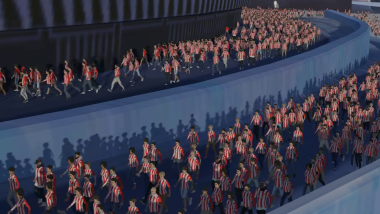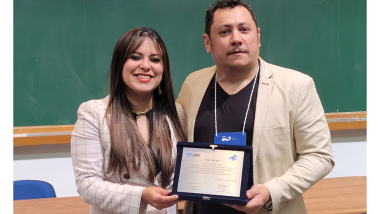- La defensa tendrá lugar en la Escuela de Ingeniería de la Universidad del País Vasco, situada en Bilbao, a las 10:30 am
Iñigo Bidaguren se incorporó al Basque Center for Applied Mathematics - BCAM en 2013 como estudiante de doctorado gracias a un acuerdo de colaboración entre el centro y la Universidad del País Vasco. Es Ingeniero Técnico (2001, UPV/EHU) e Ingeniero Industrial (2007, UPV/EHU) y tiene un Master en Ingeniería Energética Sostenible (2011, UPV/EHU). Entre los años 2001-2009 trabajó como ingeniero de producto en BATZ, una empresa que ofrece servicios y productos al sector automoción, donde entre otras tareas, colaboró en la publicación de 3 patentes. Desde 2009, es PDI en el Departamento de Ingeniería Nuclear y Mecánica de Fluidos de la UPV/EHU.
Ha realizado sus tesis sobre los Modelos de Orden Reducido (ROM) basados en Snapshots, aplicados al ámbito de la Dinámica de Fluidos Computacional (CFD), bajo la codirección de Dr. Jesús Maria Blanco Ilzarbe (UPV/EHU) y
Dr. Lakhdar Remaki (Alfaisal University, BCAM).
En nombre de todos los miembros de BCAM queremos desear mucha suerte a Iñigo en la defensa de su tesis.
[idea]
PhD Thesis title: Snapshots location for Reduced Order Models: An approach based on Proper Orthogonal Decomposition and Mesh Adaptivity Techniques
Solving Partial Differential Equations (PDE), is a key issue in science and engineering since they are widely used in many real problem modelling including fluid mechanics, acoustics, heat and mass transfer ...etc. Exact solutions for PDEs and Ordinary Differential Equations (ODE) can be obtained in a very few and simplified cases only, numerical approximations are used instead (i.e. Finite Volume Method (FEM), Finite Volume Method (FVM)...). However, and despite the availability of important supercomputing facilities, due to the huge number of degrees of freedom these methods have, they may still suffer from cost-effectiveness performance. They are mainly two contexts where one need to solve PDEs with a lower computational cost: Real-time context and Many-query context. Examples for the former are: parameter-estimation, control, flying simulator..., and for the latter: optimization, multi model/scale simulation... To reduce significantly simulation time (often on the expense of accuracy) Reduced Order Modelling (ROM) techniques are introduced. The main idea is to reduce the initial solving space dimension (as in finite elements method) to a subspace with a significantly reduced dimension and then solve for the projected solutions.
Proper Orthogonal Decomposition (POD) is one of the more used ROM strategies. The presented work focuses on this technique, which has two challenging steps: (i) the snapshot location and (ii) the error estimate on the parameter space that drive the process to search new snapshot location. As a consequence of these two steps, POD applied to PDEs is considered as belonging to the well-known Greedy Algorithm family. This thesis brings a mesh adaptivity approach as the process to find the new parameter space locations. This process will be driven by a new error estimate based on \textit{Leave One Out Cross Validation} (LOOCV) technique. We could say that this error estimate is universal, in the sense that it is not problem dependent. In addition, it is well known POD lack of accuracy when dealing with PDEs which solution contains shocks. Here, a new interpolation approach improves this, for shocked solutions. Finally, we present that the POD reduced basis is optimal just in average, and a new local basis is presented (Sorted Gram-Schmidt (SGS)) to be coupled with POD one. The criteria to decide which basis is better to be used for each new parameter value is defined as well. The whole proposed strategy efficiency is validated against a mathematical (exact) solutions of an incompressible, steady state flow equations, and on CFD solutions of an inviscid flow around a NACA0012 airfoil.
[/idea]



